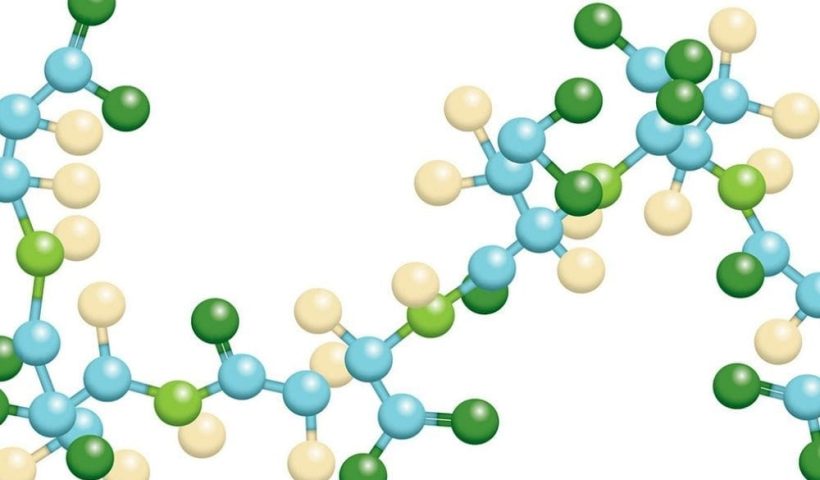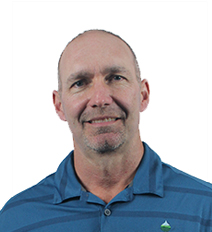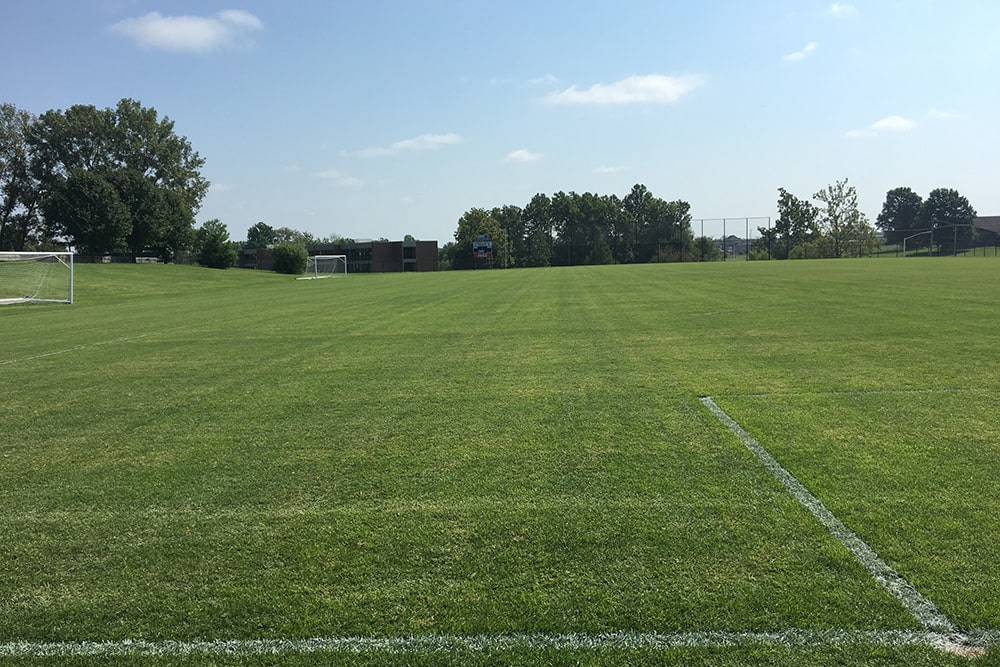
For nine years as an Assistant Coach at Southwest Baptist University, according to the University, Casey Martin helped produce thirty-six all-conference hitters and nine all-region hitters. His players have also smashed and set 36 school or conference records. With those stats, Martin is no stranger when it comes to putting in the work needed for success, and this work ethic not only applies to his players, but also his fields.
Besides being the Assistant Head Coach, Martin is also the Director of Game Management and Facilities for Southwest Baptist University. He manages two soccer fields, one baseball field, one softball field, the grounds surrounding those four fields, and the grassy areas incorporated with the track, mostly as a team of one without a background in the green industry. Despite the lack of help and knowledge, Martin’s fields are still beauties.
Because of how nice his fields look, you would never even know that just a few years ago, near the beginning of Martin’s solo turfgrass-managing career, his game-day soccer field was in dire need of help. The field was bermuda; however, weeds and poa were scattered everywhere, giving it 80% coverage.
Ryegrass was overseeded into the bermuda also, which caused more problems to the surface of the field. Every time the ryegrass was sprayed out to make way for the bermuda, the bermuda took a hit and had a hard time filling in. Martin found dealing with the ryegrass made for hours of work with little quality results. He knew there had to be a better solution to achieving a superior surface and increasing playability on his field.
The solution just happened to be found in a baseball infield experiment Martin had been working with his Advanced Turf Solutions sales rep, Brian Winka, on. A few years prior, Winka introduced the idea of a bluemuda field to Martin. Bluemuda is a concept of growing warm and cool-season grasses together, year-round, and long-term in the transition zone. When one grass is not in its peak growing conditions, the other grass takes over to keep the turf looking great all year. The take over eliminates the need to spray out a grass, like ryegrass.
Martin loved the results he was getting on his infield, and after consulting with Winka, both decided transitioning the soccer field to bluemuda could be what it and Martin needed. To create the bluemuda field, Winka advised Martin on the products necessary to clean up the weeds and poa. Then, he had him interseed Barenbrug HGT into his soccer field to reestablish the bluegrass. The interseeding process worked.
“Our primary soccer field is in great shape after the bluemuda transition,” Martin said. “The dinged up bermuda we were having a problem with doesn’t occur now that we don’t have to overseed the ryegrass and the bluegrass and bermuda work so well together throughout the year that our field has just transformed.”
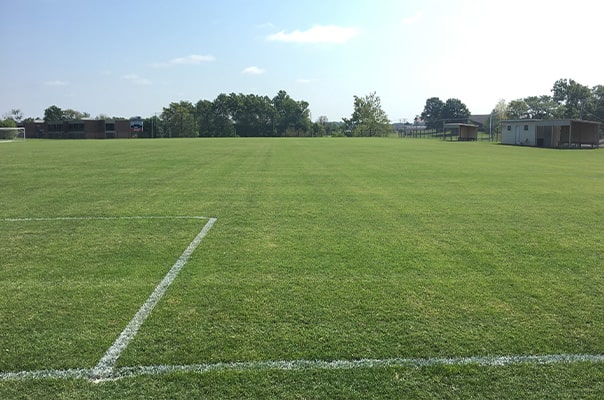
Winka gave Martin one other important piece of advice to help him maintain a bluemuda field: use Foliar-Pak. Winka advised Martin to apply Foliar-Pak Grow-In.
“Grow-In has absolutely helped us finally transition our primary soccer field to the elite status it is today,” Martin said. “Along with a regular maintenance schedule, it helps keep the field in good shape in the heat and the dryness that we usually get in July and pushes it into gear when the soccer season begins. We are finally getting the lush surface we want for playability using Grow-In.”
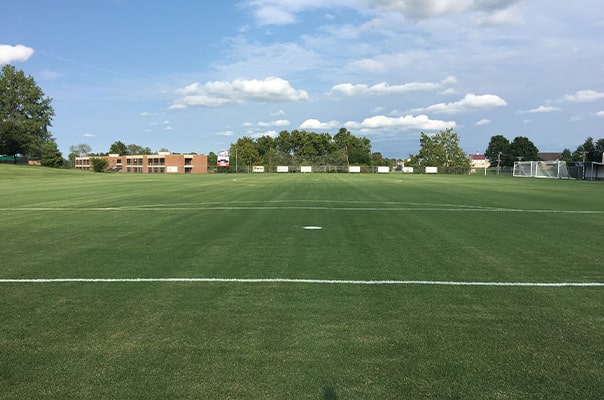
Martin doesn’t just use Foliar-Pak Grow-In on his bluemuda soccer field; he also uses it on the aforementioned bluemuda baseball infield and his outfield. The field hosts summer tournaments, intramurals, camps, and SBU games and practices from early January to Thanksgiving, which causes plenty of traffic-wear. Martin leans on Foliar-Pak Grow-In to help his field withstand the year-round traffic, especially in the transition period from winter to spring, which seems to get earlier each year.
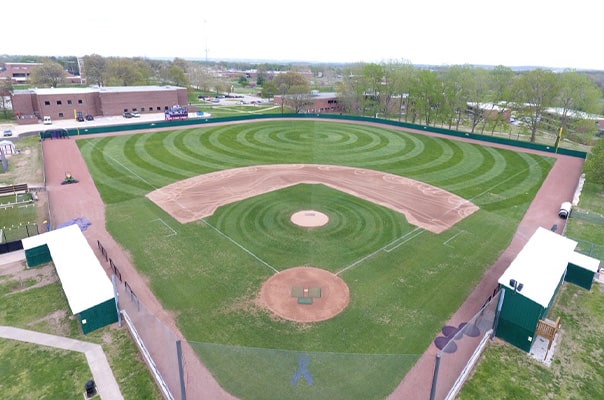
“We start putting out our first app of Grow-In at the beginning of March to wake up the grass and start pushing it to get through that transition period coming out of the winter,” he said. “Grow-In kicks the field in gear, thickening and greening it up pretty quick. ”
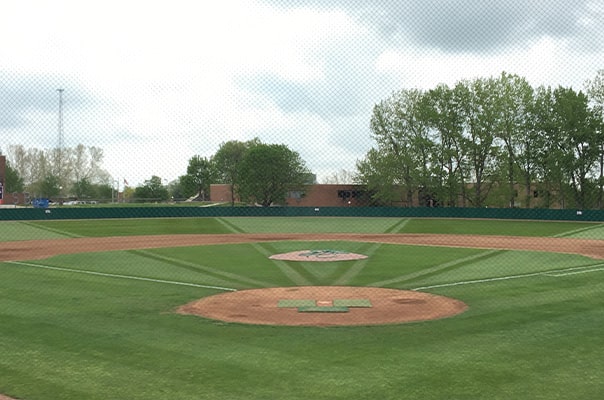
He added, “Using Grow-In and aerating more frequently on our grass baselines and infield during the season has really helped our wear areas down the line in and front of the mound. They don’t get beat up as bad.”
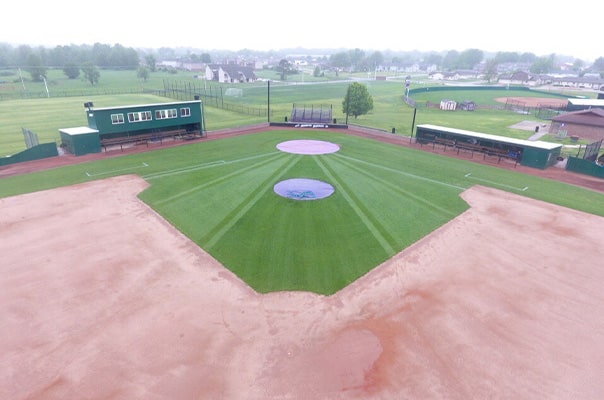
Tackling field management for a University with little experience in the area is a challenge for anyone. But with all the hard work Martin has put in and the results he has achieved, he can surely add superb field management among his other fantastic stats.


